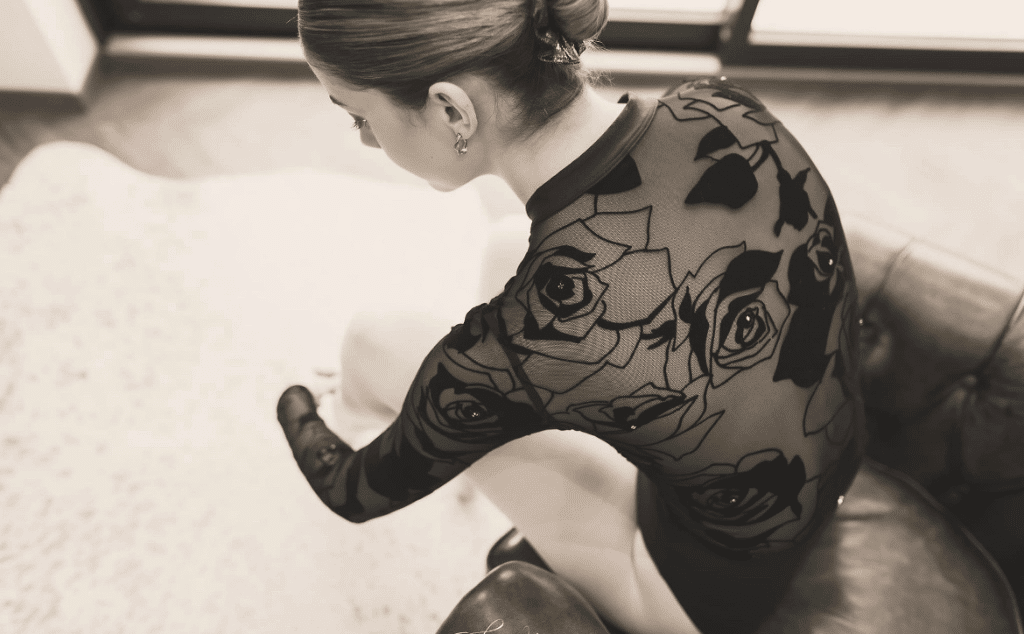The dance gala is one of the most eagerly awaited events of the year. It's the culmination of months of work and rehearsals. But as the big day approaches, the excitement sometimes gives way to stage fright, the fear of making a mistake, or a surge of emotion that's hard to channel. In this article, we give you some techniques for managing your stress and emotions more effectively, so that every dancer can make the most of this unique moment.
Rehearsals are essential if you are to feel ready for the big day. Don't hesitate to rehearse your choreography many times so that you know it inside out. Choreographing the moves will help you memorise them more easily.
With repeated practice, the movements become automatic, almost instinctive. This also helps to reassure you about your ability to perform the choreography and to limit stress on the big day. We also recommend that you rehearse your choreography in real conditions with your costume on, and if possible, on stage.

We advise you to work on positive visualisation. Used for a very long time in sport to improve performance, this method invites the brain to create a situation. The mental projection of this positive situation is experienced by our brain as reality, which in turn enables it to respond positively. In this way, positive visualisation helps the brain to get into the right frame of mind to succeed.
To carry out a positive visualisation, we recommend that you put yourself in the right conditions. You can start by relaxing your body and standing up straight. Ideally, avoid lying down or slouching. Then close your eyes.
Imagine yourself performing your choreography successfully, moving around the stage and hearing the applause at the end of your performance. You'll imagine all the positive emotions running through your mind at that moment and experience them intensely.
Don't forget that it's important to feel good before doing any positive visualisation work, to optimise its effects.
Just before going on stage, it's perfectly normal to feel a surge of adrenaline: your heart races, your hands become clammy and your breathing shortens. These are the body's natural reactions to stress. The good news is that by regaining control of your breath, you can help your body to calm down quickly.

A few slow, deep breaths will instantly relieve the pressure. For example, you can do the cardiac coherence exercise. This is a practice that reduces stress and anxiety in just 5 minutes.
This is known as the "3-6-5" method. In other words, for 3 days you will perform 6 breathing frequency cycles per minute, for 5 minutes. To do this, we advise you to breathe in through your nose and out through your mouth. The aim of this technique is to slow down your breathing, with an inhalation time of around 3 to 4 seconds and an exhalation time of 6 to 7 seconds. The result is a lower heart rate and a feeling of well-being.
It's time to go on stage! Follow our advice on how to avoid stress during your performance.
Anchoring is a relaxation and meditation technique widely used to reduce stress and anxiety. It involves cutting yourself off from agitation to get back to basics: anchoring yourself in the present moment, to calm down and stay focused. It involves using sensations such as feeling your feet on the ground, listening to music, becoming aware of your breathing, feeling the lights on your skin...
By focusing on the present moment, dancers are not overwhelmed by the thoughts running through their minds, such as the fear of taking a wrong step or the gaze of the audience. They can manage their emotions more easily and take a step back from the situation. This allows the dancer to relax very quickly and develop concentration.
On stage, a simple smile can change everything. It helps you release tension, breathe easier and reconnect with the pleasure of dancing.
It's also a way of creating a bond with the audience. When you smile, you convey a positive emotion. And that smile, even if it's intended for the audience, also has an effect on you. It sends a positive signal to your brain. So when your nerves get the best of you, when your thoughts are racing, just remember to breathe and smile to calm yourself down.
With the right mental and physical preparation, regular rehearsals and simple breathing and visualisation techniques, you can manage your stress and emotions more easily.